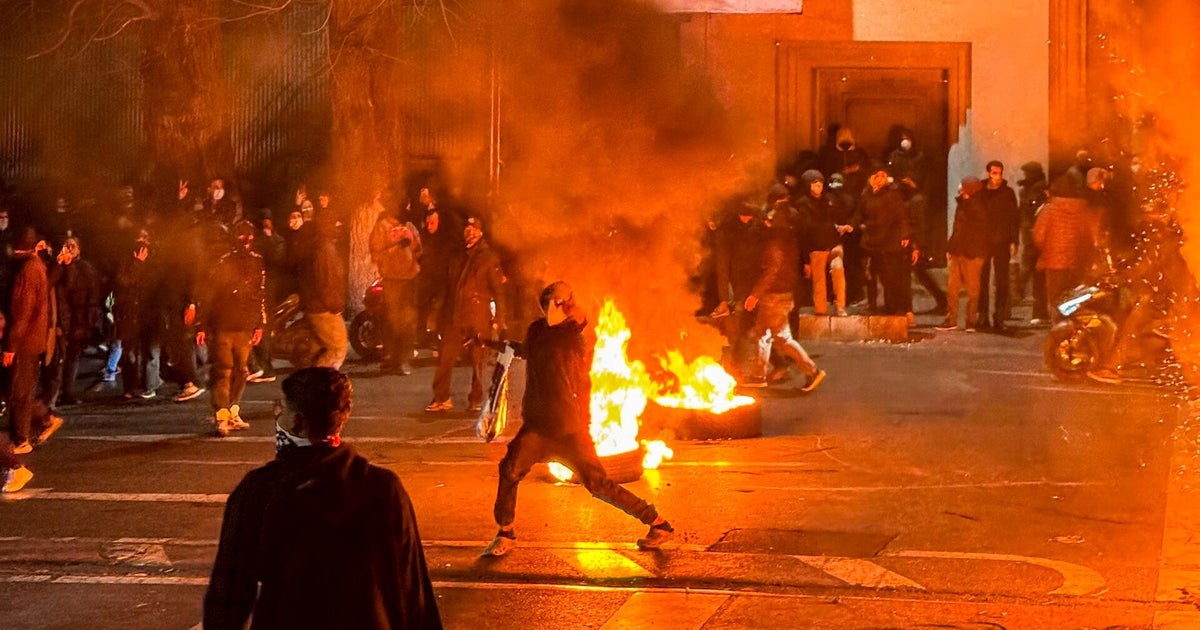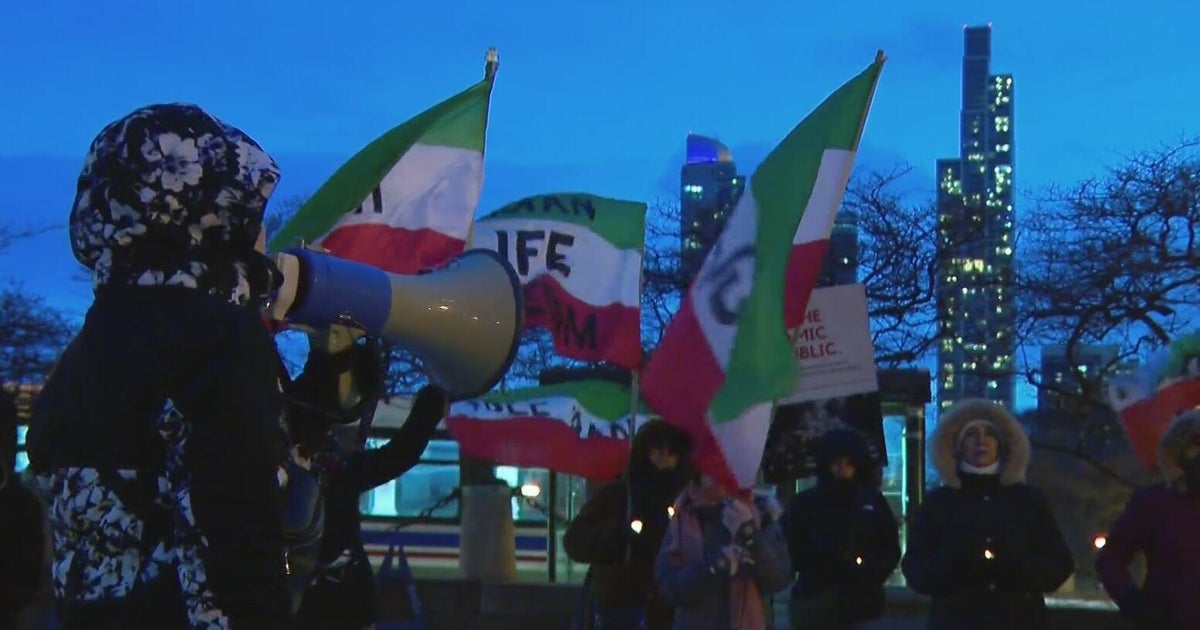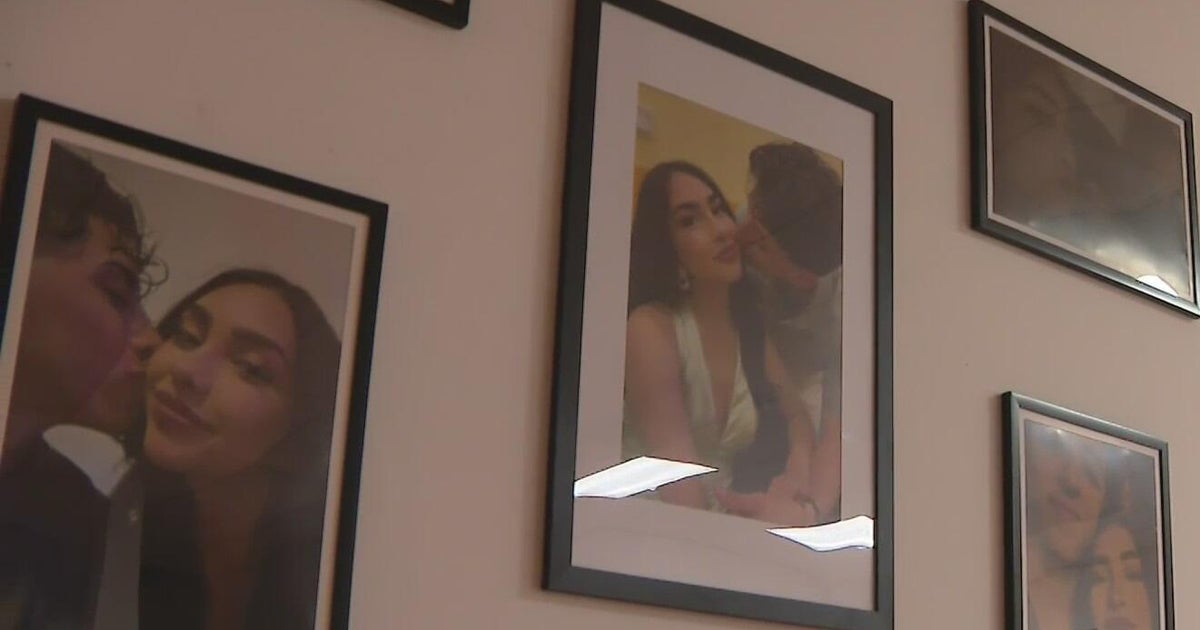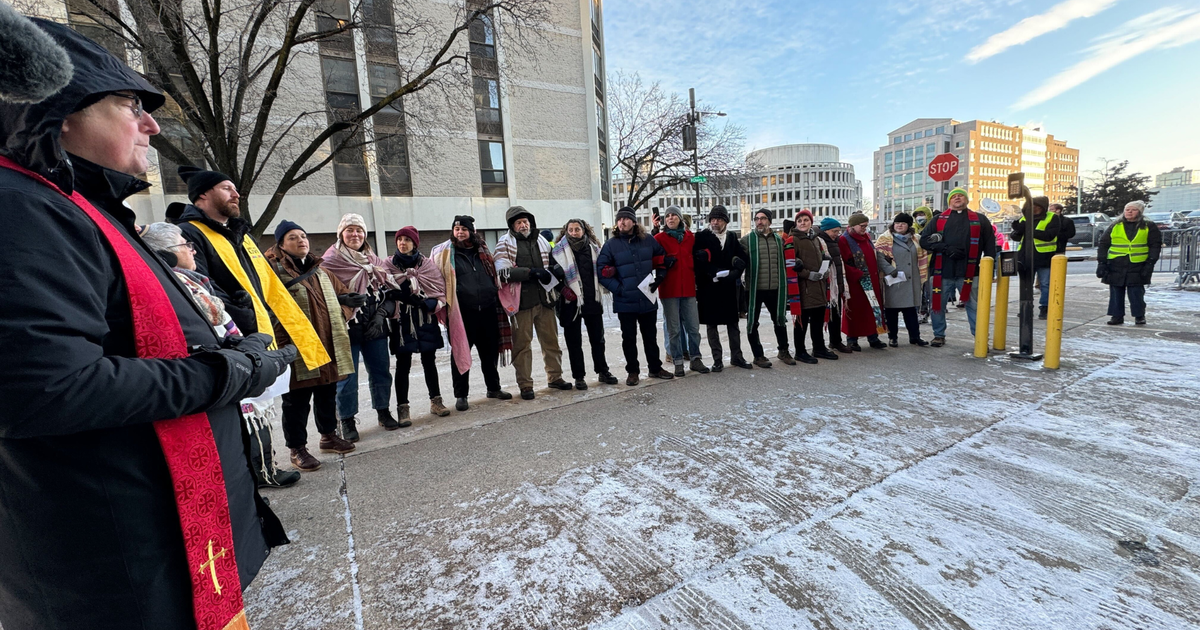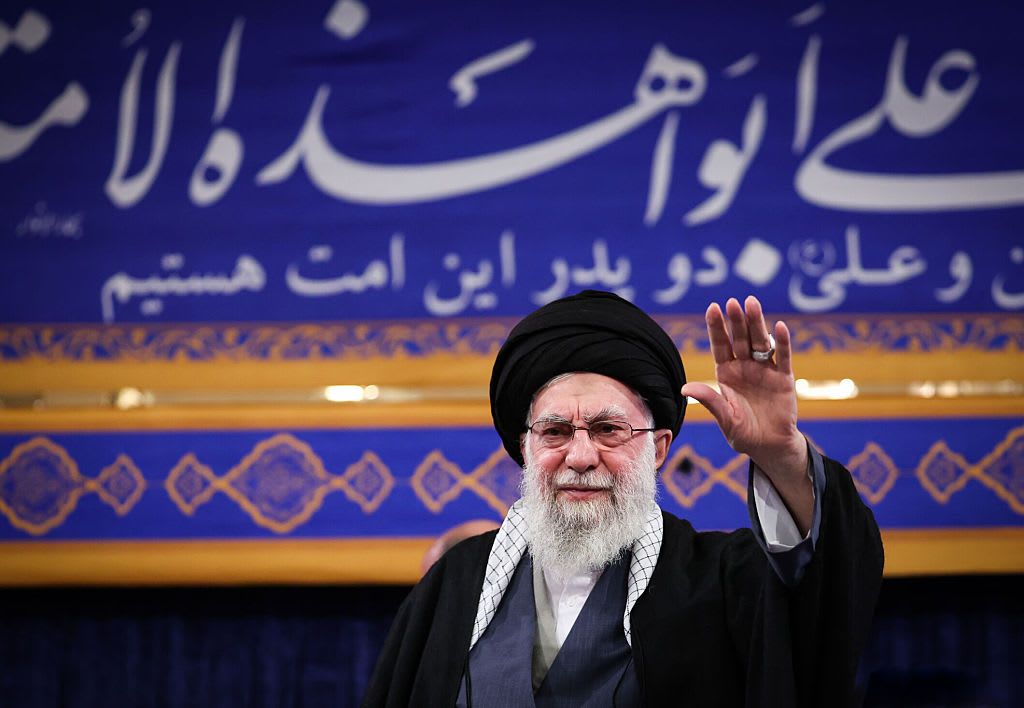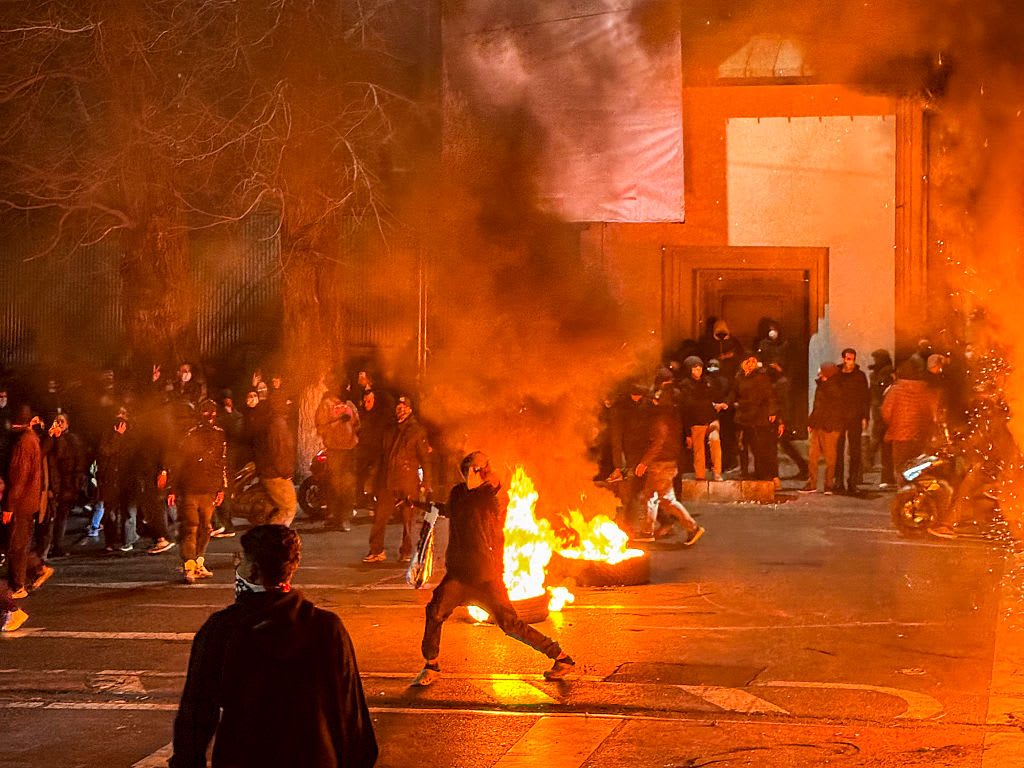How art is amplifying the Iran protesters' demands for "woman, life, freedom!"
Chicago — With each stroke of her brush, Roya Karbakhsh paints a story about women, life, and freedom. The 35-year-old told CBS News that in her native country of Iran, she didn't have the confidence to create works of art depicting women posing proudly with their hair showing.
"As a woman, I wasn't able to show my hair and my body over there… I would always ask myself, 'Why?'" she said. "So, I try and talk through my paintings… women can be free and do whatever they want."
Karbakhsh said that in the Islamic Republic of Iran, she could only display paintings of men, not women.
"The first thing the regime wants to do to women is to control a woman's body," she said. "They don't want to give women freedom. It's scary for them."
Since moving to Chicago five years ago, Karbakhsh has portrayed womanhood exactly as she wishes.
Her latest work has been inspired by the women and girls who have led the widespread protests raging across her homeland. The unrest, the most serious challenges Iran's Islamic cleric rulers have faced since they came to power in 1979, was sparked by the death of 22-year-old Mahsa Amini in the custody of Iran's "morality police" on September 16.
Since then, women have been casting off their mandatory headscarves in public and leading chants of "Woman, life, freedom!" At the same time, anti-regime art, often bearing the same slogan, is appearing on walls. Fountains have been dyed the color of blood, and protest songs have gone viral online.
The most successful of those musical protests has been a song called "Baraye," which means "for the sake of." Singer Shervin Hajipour based the lyrics on an outpouring of tweets by Iranians, voicing their own reasons for joining the demonstrations: "For the sake of dancing in the streets… the shame of poverty… for a normal life… and often, for woman, life, freedom!"
A video of Hajipour singing his song was viewed 40 million times in less than 48 hours, making Baraye the most viral tune to ever come out of Iran — and an unofficial anthem of the protests.
Speaking on condition of anonymity due to fear of retaliation from the regime, one college student in Tehran told CBS News that the lyrics made her cry.
"Some are so personal," the young woman told us. "That shows how much our personal lives have been controlled all these years. We didn't have any privacy. We didn't have the right to sing, to speak up, to wear what we want. Can you imagine that?"
The song has resonated around the world, even being performed by Coldplay alongside exiled Iranian actor Golshifteh Farahani. It has also been sung at recent rallies, from Berlin to Los Angeles, held in solidarity with Iran's protesters.
Iranian expats have come out for these rallies in force, including actor Tara Grammy, who knows the words to Baraye by heart.
"It resonated with every single one of us," she told CBS News. "Those reasons are also why there are so many Iranian immigrants in the diaspora, and they're all the reasons why we're standing up now."
Iranian authorities have long tried to "silence art," including the song Baraye, because "it's the voice of the hearts of the people," Grammy said, adding: "They can silence artists, they can't silence art."
The hardline regime has long censored music, art and culture.
Just months ago, it released its own anthem, "Hello, Commander," aimed at Iranian children, in praise of Supreme Leader Ayatollah Ali Khamenei.
"It's ironic that the government really tried to colonize the young people's minds and now it has been replaced by one guy singing a song into a camera," said Ahmad Sadri, a sociology professor at Lake Forest College in Illinois, referring to Hajipour. Sadri said artists in Iran now have an opportunity "to express themselves and to chime in with this revolution."
But standing up or speaking out inside Iran is incredibly risky.
Hajipour was detained for days after his song went viral, and friends of outspoken dissident rapper Toomaj Salehi say he's being tortured in prison after his arrest on October 29.
"We are so worried about Toomaj, because he hasn't been able to communicate with this family, and the regime of Iran has proven many times that it doesn't tolerate criticism and treats its opponents with extreme violence," said Negin, Salehi's friend and social media coordinator, who asked CBS News not to use her last name for security reasons.
"He's a singer," she told CBS News, "Rap is for protesting, and he was singing about social issues. The only thing he did was to stand by the people [of Iran]."
"There are still thousands of people in the streets loudly saying that they don't want this regime," she added. "He always said that the streets are ours, and they cannot take them from us."
Another rapper, Kurdish Iranian musician Saman Yasin, who has written protest songs and posted support for the anti-regime protests on social media, has been charged with "waging war against God." That charge can carry the death penalty.
Yasin and Salehi are among the estimated two dozen musicians and actors now imprisoned in Iran, the rights group Human Rights Activists in Iran told CBS News.
With more freedom to create, Iranian singers, artists, and actors outside the country, including Karabakhsh, are trying to amplify the voices of those they left behind.
"You deserve to have a freedom," she said, addressing her fellow Iranians. "And you are right to fight for that."
She wants them to know they're not alone.
Baraye has been submitted for a Grammy Award in a new category this year, the "best song for social change."
The Recording Academy says it has received tens of thousands of nominations for the song from members of the public. It plans to announce its nominees next Tuesday.

